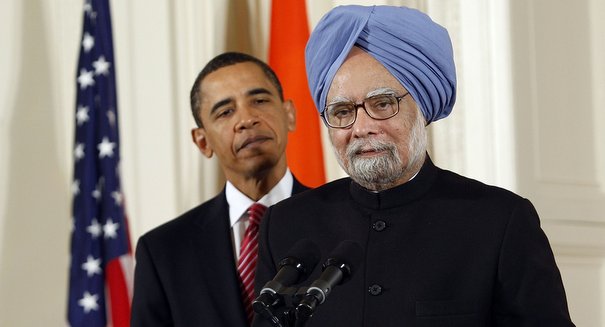As the Obama Administration transitions to power already burdened with global economic crises and two wars, two events underscore India’s importance for US interests: the brutal Mumbai attacks and the financial sector meltdown. The Mumbai attacks reminded Americans of India’s vulnerability to global terrorism, our shared struggle against violent Islamic extremism, and the potential for crisis to rapidly escalate in the region. The financial sector meltdown and the emerging global response showed how India can be a key part of the solution through leadership in global bodies such as the G20.
India matters to virtually every major foreign policy issue that will confront the United States in the years ahead. A broad-based, close relationship with India will thus be necessary to solve complex global challenges, achieve security in the critical South Asian region, reestablish stability in the global economy, and overcome the threat of violent Islamic radicalism which has taken root across the region and in India. The members of this Task Force believe that the US relationship with India will be among our most important in the future, and will at long last reach its potential for global impact—provided that strong leadership on both sides steers the way.
The new relationship rests on a convergence of US and Indian national interests, and never in our history have they been so closely aligned. With India, we can harness our principles and power together to focus on the urgent interconnected challenges of our shared future: economic stability, expanded trade, the environment and climate change, innovation, nonproliferation, public health, sustainability, and terrorism. Together our two countries will
be able to take on some of the most vexing problems facing the world today, and improve the lives and security of our citizens in doing so. But to get there, we must set broad yet realistic goals to be shared by both countries.
This report offers goals toward that ambitious agenda for our shared future. Our Task Force recommends dramatically enhancing cooperation with India not only between our governments, but also between our governments and both our private sectors. We must tap the private sector momentum in the relationship to address the kinds of big problems governments cannot solve alone.
Over the next four years, we recommend the following priorities for action across two parallel tracks:
Track 1: Strengthening Governmental Ties
- Secure India’s leadership in multilateral institutions to provide the US with a constructive partner in global decision making;
- Expand cooperation toward economic growth, particularly focusing on financial recovery, trade and investment—managing our current crisis, concluding the Doha Round or its successor, and completing a bilateral investment treaty;
- Expand security cooperation, including a vastly enhanced counterterrorism partnership, expanded consultation on South Asia, stronger maritime cooperation, and new consultation on other key regions of the world;
- Bring India into greater dialogue on the future of nonproliferation, including the NPT review conference, and new efforts to achieve global nuclear disarmament.
Track 2: Joint Public-Private Partnerships for Complex Global Challenges
- Collaborate on climate change, where our dyn amic scientific and high-tech communities could work with our policy experts to craft solutions;
- Work toward a Second Green Revolution in India, which will have global impact by profoundly transforming the lives of a quarter of the world’s poor;
- Partner on secondary and higher education, where the training requirements for India’s large population exceeds its current capacity, a challenge uniquely suited for linkages with US institutions;
- Cooperate in awareness and support of HIV/AIDS, especially in sub-Saharan Africa, but also in India, the US , and around the world.
This Task Force believes deeply in the vast potential of our relationship with India. The compatibility of our values, our strengths, and our global visions offers a unique context for us both to craft an ambitious agenda for the years ahead—for, unusually among two powers, we have no intrinsic conflicts of interest. With a new administration in Washington, and national elections in India during the first half of 2009, we have an opportunity to deliver on the promise that the world’s two largest democracies have to offer each other, and the world.
The Task Force is chaired by Amb. Frank G. Wisner and Charles R. Kaye. Other members include Alyssa Ayres, Scott R. Bayman, Marshall M. Bouton, Stephen P. Cohen, Vishakha N. Desai, Amy Gutmann, Victor J. Menezes, Jamie F. Metzl, George Rupp and Amb. Teresita Schaffer.





